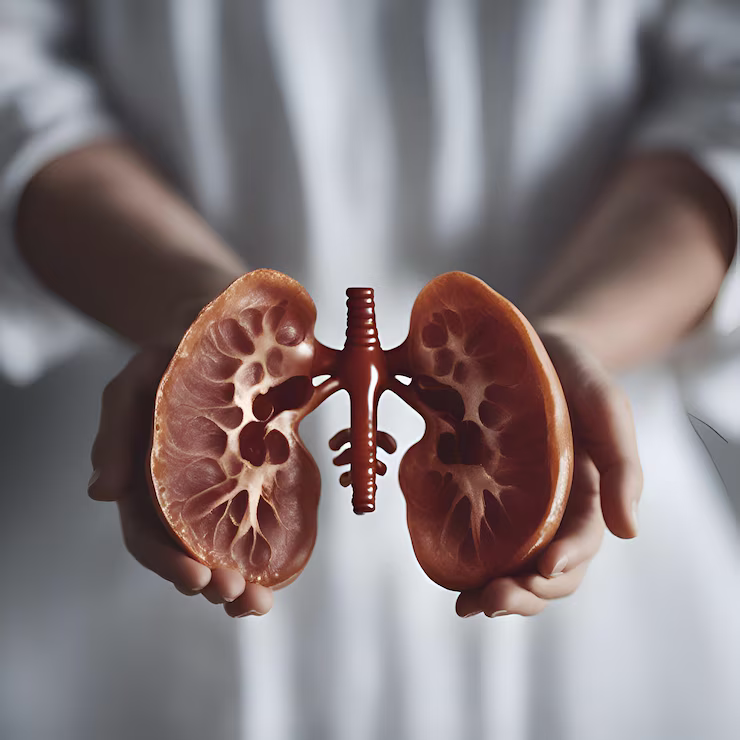Nephrology: Protecting Your Kidney Health
Nephrology is the medical specialty focused on the kidneys—vital organs responsible for filtering waste, balancing fluids, and regulating blood pressure.
🔍 Key Functions of the Kidneys:
Filter and remove toxins through urine
Regulate blood pressure and electrolyte levels
Produce hormones that support red blood cell production and bone health
🩺 Common Kidney-Related Conditions:
Chronic Kidney Disease (CKD)
Acute Kidney Injury (AKI)
Kidney stones
Glomerulonephritis
Polycystic Kidney Disease (PKD)
Hypertension-related kidney damage
End-stage renal disease requiring dialysis or transplant
🚨 Signs of Kidney Problems:
Swelling in the legs, ankles, or face
Changes in urination (color, frequency, or foam)
Persistent fatigue or weakness
High blood pressure
Metallic taste in the mouth or ammonia-like breath
Difficulty concentrating or confusion
How to Support Kidney Health:
Stay well-hydrated with clean water
Maintain healthy blood sugar and blood pressure levels
Limit excessive salt, protein, and over-the-counter painkillers
Avoid smoking and alcohol overuse
Get regular kidney function tests if at risk (diabetes, hypertension, family history)
🔔 Early detection saves kidneys. Nephrologists help prevent progression and provide life-saving care when needed. Protect your kidneys—your body depends on them.
Nephrology is the medical specialty focused on the kidneys—vital organs responsible for filtering waste, balancing fluids, and regulating blood pressure.
🔍 Key Functions of the Kidneys:
Filter and remove toxins through urine
Regulate blood pressure and electrolyte levels
Produce hormones that support red blood cell production and bone health
🩺 Common Kidney-Related Conditions:
Chronic Kidney Disease (CKD)
Acute Kidney Injury (AKI)
Kidney stones
Glomerulonephritis
Polycystic Kidney Disease (PKD)
Hypertension-related kidney damage
End-stage renal disease requiring dialysis or transplant
🚨 Signs of Kidney Problems:
Swelling in the legs, ankles, or face
Changes in urination (color, frequency, or foam)
Persistent fatigue or weakness
High blood pressure
Metallic taste in the mouth or ammonia-like breath
Difficulty concentrating or confusion
How to Support Kidney Health:
Stay well-hydrated with clean water
Maintain healthy blood sugar and blood pressure levels
Limit excessive salt, protein, and over-the-counter painkillers
Avoid smoking and alcohol overuse
Get regular kidney function tests if at risk (diabetes, hypertension, family history)
🔔 Early detection saves kidneys. Nephrologists help prevent progression and provide life-saving care when needed. Protect your kidneys—your body depends on them.
Nephrology: Protecting Your Kidney Health
Nephrology is the medical specialty focused on the kidneys—vital organs responsible for filtering waste, balancing fluids, and regulating blood pressure.
🔍 Key Functions of the Kidneys:
Filter and remove toxins through urine
Regulate blood pressure and electrolyte levels
Produce hormones that support red blood cell production and bone health
🩺 Common Kidney-Related Conditions:
Chronic Kidney Disease (CKD)
Acute Kidney Injury (AKI)
Kidney stones
Glomerulonephritis
Polycystic Kidney Disease (PKD)
Hypertension-related kidney damage
End-stage renal disease requiring dialysis or transplant
🚨 Signs of Kidney Problems:
Swelling in the legs, ankles, or face
Changes in urination (color, frequency, or foam)
Persistent fatigue or weakness
High blood pressure
Metallic taste in the mouth or ammonia-like breath
Difficulty concentrating or confusion
✅ How to Support Kidney Health:
Stay well-hydrated with clean water
Maintain healthy blood sugar and blood pressure levels
Limit excessive salt, protein, and over-the-counter painkillers
Avoid smoking and alcohol overuse
Get regular kidney function tests if at risk (diabetes, hypertension, family history)
🔔 Early detection saves kidneys. Nephrologists help prevent progression and provide life-saving care when needed. Protect your kidneys—your body depends on them.




